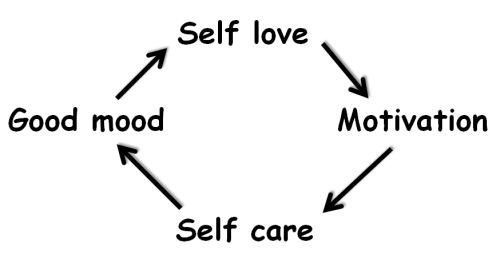 May is Revise Your Work Schedule Month, National Mental Health Month and National Meditation Month. That seems telling; people are tired, over-worked, and stressed! The boss gives another assignment and there goes your evening. Maybe you are the boss and it is a demanding client that prevails upon your time. Perhaps it is the kids hectic after school activity schedule that keeps you running It is easy to forget to take care of ourselves.
May is Revise Your Work Schedule Month, National Mental Health Month and National Meditation Month. That seems telling; people are tired, over-worked, and stressed! The boss gives another assignment and there goes your evening. Maybe you are the boss and it is a demanding client that prevails upon your time. Perhaps it is the kids hectic after school activity schedule that keeps you running It is easy to forget to take care of ourselves.
Revise Your Work Schedule
I love the concept of revising your work schedule. After all, who doesn’t want a better work life balance? Whether that involves telecommuting a few days a week, tweaking your schedule or job sharing, in a perfect world those things can happen. Not everyone lives in a perfect world. So what are some things you can do to make your day more productive?
- Clean off your desk…make files not piles. The average worker wastes 2 hours per day re-handling and looking for things. Keep that in mind at home as well, go through your mail while standing at the trash can (or recycle bin) and immediately throw out the junk mail you don’t want.
- Make a plan. Prioritize! Recently a client of mine made the decision that she would do monthly birthday celebrations in her office with one big cake instead of the individual cakes and parties she used to give. The company has grown and so have her responsibilities. I encouraged her to take this a step further and delegate!
- Keep a good to do list! There is just something aesthetically pleasing to crossing off the accomplishments of the day. Furthermore, once something is in writing, it becomes less nagging and easier to remember.
- Take Action! Spend more time doing than worrying. To use an often repeated adage, “Worry is a misuse of imagination!”
NO MORE MULTI-TASKING
Now that you are more organized, let me offer one more piece of advice. STOP MULTI-TASKING! Yes, you read that correctly. Stop multi-tasking and start mono-tasking. Take a moment as you read this to mute your music. Turn off your television. Put down your sandwich and ignore that text message. Just read this. That is monotasking. Simple enough?
People love to brag that they can accomplish multiple activities at once; the problem is (according to recent studies) they are not doing those things well. A study in the American Journal of Experimental Psychology found that a mere 3 second interruption doubles mistakes and 4 seconds triples them. In easier terms, the time it takes to read a text can increase your risk of making a mistake! That is terrifying when you see the people texting while driving.
Kelly McGonigal, a psychologist, lecturer at Stanford and the author of “The Willpower Instinct,” believes that monotasking is “something that needs to be practiced.” She said: “It’s an important ability and a form of self-awareness as opposed to a cognitive limitation.”
Having dinner with the family? Put the phones and all the temptations of social media away. Turn off the television then watch the magic of conversation flowing at its best. Imagine going out for lunch and actually taking the time to notice aromas, appearance, flavors and textures instead of staring at your phone or computer monitor. Trust me; your digestion will thank you.
MEDITATION
Meditation is the third item brought to our awareness this month. What a perfect match for those looking to improve the quality of their lives. You have made changes in your day, started working on focusing on one thing at a time and now the wonderful mental vacation of meditating.
What I have observed is that type A, over achieving personality types tend to want to start out at 30+ minutes a day and do it perfectly. Instead, try just 2 minutes a day (already easier to fit into your schedule) and forget about perfection. Just breathe! That’s right, just breathe and count those breathes, while really feeling them enter and leave your body for a total of 2 minutes. That alone will help your brain and improve your day.
May flowers are popping up all over where I live. Birds are singing as I see babies in the nests on my morning walks. In Great Britain, May is National Smile Month. I have plenty of reasons to smile, so perhaps I shall add that to my list of celebrations. How about you?

 When we ruminate on the past, we aren’t enjoying the now. When we worry about the future, we don’t appreciate the present. Neither ruminating nor worrying solve a thing. When we learn to appreciate the moment, we are home! Sounds good, but how do we manage to do that? Here are seven easy tips for including mindfulness in your day.
When we ruminate on the past, we aren’t enjoying the now. When we worry about the future, we don’t appreciate the present. Neither ruminating nor worrying solve a thing. When we learn to appreciate the moment, we are home! Sounds good, but how do we manage to do that? Here are seven easy tips for including mindfulness in your day.




